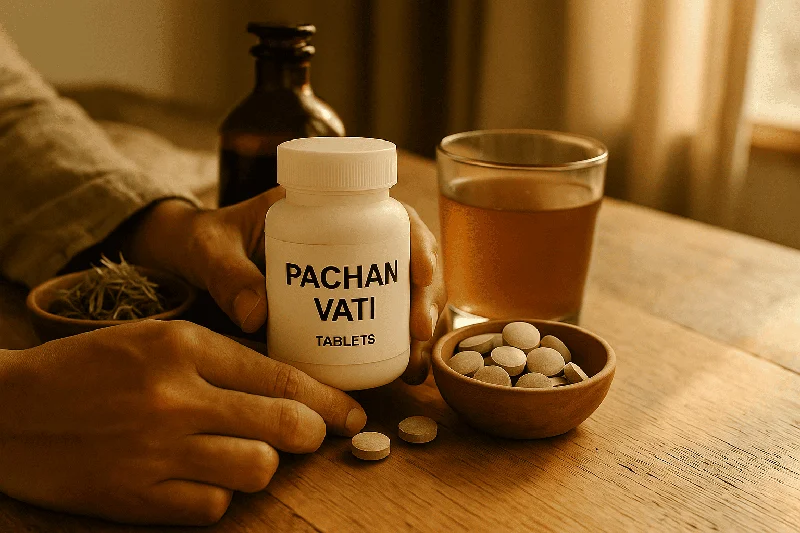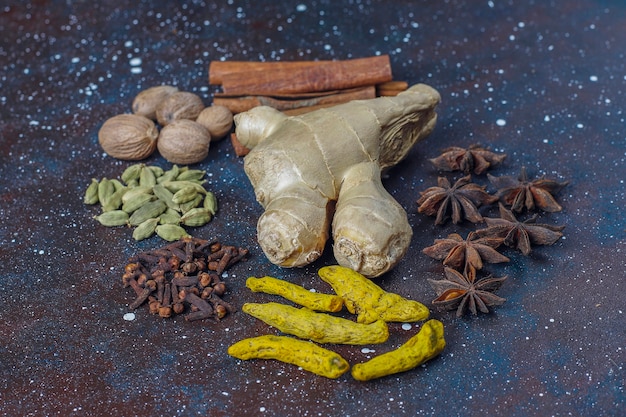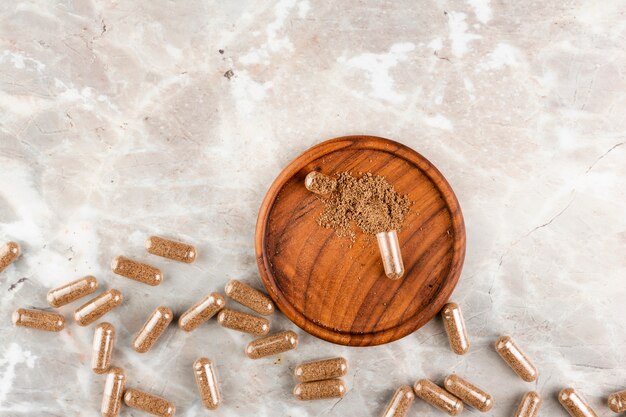Pachan Vati: Ayurvedic Insights and Modern Health Benefits

Modern lifestyles have given rise to a staggering number of digestive health complaints. Stress, highly processed foods, and irregular eating patterns often lead to issues like bloating, acid reflux, and sluggish metabolism. According to a 2021 survey by the American Gastroenterological Association, nearly 74% of Americans suffer from some form of digestive discomfort at least once a week. But what if there was a time-tested, natural approach to support your digestive health—something steeped in the centuries-old tradition of Ayurveda? Pachan Vati might be just what you are looking for.
In this article, we will explore the concept, ingredients, and potential benefits of pachan vati, supported by scientific insights and evidence-based research. Whether you are a healthcare provider seeking integrative treatment options or simply someone looking to improve your digestive wellness, read on to discover how pachan vati may fit into your health regimen.
Table of Contents
Don't wait or self medicate. Start chat with Doctor NOW
What is Pachan Vati?
Pachan Vati is a traditional Ayurvedic herbal formulation primarily used to aid digestion. The term “pachan” in Sanskrit implies “digestion,” while “vati” refers to a small tablet or pill. Rooted in India’s ancient medical system of Ayurveda, pachan vati typically comprises a combination of herbs and spices known for their carminative (anti-gas), digestive, and metabolic support properties.
In the broader context of Ayurvedic treatments, pachan vati is considered helpful in balancing the internal heat (pitta) and regulating bodily functions related to the gastrointestinal tract. Over the years, it has gained attention outside traditional communities as an alternative or integrative approach to improving gut health and addressing common digestive issues.
Key Ingredients and Their Properties
Ayurvedic formulations often rely on the synergistic action of multiple herbs. Pachan Vati is no different, and while the exact composition may vary depending on the brand or practitioner’s recipe, the following herbs and botanicals are frequently included:
-
Trikatu
-
A blend of Pippali (Long Pepper), Maricha (Black Pepper), and Shunti (Ginger)
-
Known for enhancing digestive fire (Agni) and aiding nutrient absorption
-
-
Jeeraka (Cumin)
-
Helps in reducing bloating and aids digestion by stimulating the secretion of digestive enzymes
-
Traditionally recognized for its carminative properties
-
-
Hingu (Asafoetida)
-
Often used to combat flatulence and abdominal discomfort
-
Exhibits potential anti-inflammatory properties, per some in vitro studies
-
-
Ajwain (Carom Seeds)
-
Well-known digestive aid that may help reduce abdominal pain and indigestion
-
Sometimes used to alleviate symptoms of colic and gas
-
-
Rock Salt (Saindhava Lavana)
-
In Ayurveda, rock salt is considered a mineral that balances electrolytes and promotes better digestion
-
It is typically gentler on the stomach than table salt
-
-
Triphala (If Included)
-
Composed of three fruits: Amla, Haritaki, Bibhitaki
-
Revered for its detoxifying and bowel-regulating properties
-
Why These Ingredients?
In Ayurvedic philosophy, digestive well-being is crucial to overall health. Combining these herbs ensures a broad-spectrum approach—spices like ginger and pepper stimulate digestive enzymes, while jeeraka and hingu manage bloating and flatulence. The synergy of these ingredients can create a potent formulation for supporting the stomach’s capacity to break down food and absorb nutrients.
How Does Pachan Vati Work?
From an Ayurvedic viewpoint, pachan vati works primarily by balancing the digestive fire, known as Agni. An optimized Agni is believed to be responsible for efficient digestion, absorption, and assimilation of nutrients. Ayurvedic texts suggest that when Agni is weakened, food remains partially digested, leading to the formation of toxins (Ama) that can trigger various health issues.
-
Stimulating Enzyme Production:
Ingredients like ginger and black pepper can promote enzyme secretion, helping break down complex carbohydrates, proteins, and fats more efficiently. -
Alleviating Gas and Bloating:
Components such as ajwain and asafoetida are traditionally used to reduce gas formation, thus relieving bloating and abdominal discomfort. -
Supporting Metabolic Processes:
By improving digestion and nutrient absorption, pachan vati may indirectly support metabolic functions. Some people notice increased energy levels and reduced lethargy when their gut health improves. -
Detoxification:
In Ayurvedic practice, optimal digestion is linked to effective natural detox processes in the body. Herbs like triphala (if included) are often touted for their purifying effects.
Scientific Evidence and Clinical Studies
While Ayurveda has been practiced for thousands of years, the modern scientific community has only recently started validating some of its formulations. Several peer-reviewed studies focus on the individual ingredients found in pachan vati, although research specifically titled “Pachan Vati” is limited.
-
Ginger & Black Pepper Research:
A review published in the Journal of Medicinal Food (2018) suggested that gingerols in ginger and piperine in black pepper have potent anti-inflammatory and digestive enzyme-activating properties 11. -
Jeeraka (Cumin) Efficacy:
According to a clinical trial reported in the Iranian Red Crescent Medical Journal (2019), cumin supplementation showed promise in reducing symptoms of irritable bowel syndrome (IBS), including abdominal pain and bloating 22. -
Asafoetida (Hingu) Studies:
Pharmacognosy Reviews featured a summary in 2020 indicating asafoetida’s anti-flatulent and potential antimicrobial activities, supporting its traditional use in digestive formulations 33. -
Triphala’s Detox Properties:
Multiple studies (e.g., International Journal of Ayurveda Research, 2017) have found triphala to aid gut motility and exert antioxidative effects, though larger-scale human trials are still needed 44.
While these findings are encouraging, it is essential to remember that more high-quality clinical studies are necessary to draw definitive conclusions about pachan vati as a composite remedy.
Potential Benefits of Pachan Vati
Given the synergy of its ingredients, pachan vati may offer several potential benefits:
-
Digestive Support
-
Alleviates mild symptoms of bloating and indigestion
-
May reduce flatulence and occasional constipation
-
-
Enhanced Nutrient Absorption
-
Stimulates digestive enzymes for more efficient nutrient uptake
-
Supports overall metabolic rate
-
-
Potential for Weight Management
-
Some herbs, like ginger, have been linked to supporting healthy metabolism, which might indirectly aid weight balance
-
By improving digestion, one may feel satisfied with smaller portion sizes
-
-
Balancing Body Doshas
-
Ayurveda emphasizes the equilibrium of Vata, Pitta, and Kapha doshas
-
Pachan vati is often recommended to moderate excessive Kapha or Pitta conditions that manifest in digestive discomfort
-
-
Holistic Wellness
-
When gut health is optimized, it can positively influence mood, energy levels, and immune function
-
Some research suggests gut-brain connection plays a vital role in emotional well-being
-
Possible Side Effects and Precautions
Though pachan vati is generally considered safe when used as directed under professional guidance, some considerations include:
-
Sensitivity to Spices:
People unaccustomed to spicy foods (e.g., ginger, black pepper) may experience gastric irritation or a burning sensation if consumed in high doses. -
Allergic Reactions:
Although rare, some individuals may have specific allergies to herbs like asafoetida or carom seeds. -
Medical Interactions:
If you are on medications for chronic conditions like diabetes, hypertension, or GERD (gastroesophageal reflux disease), consult a qualified healthcare provider before adding pachan vati to your routine. Some herbs can interact with prescription drugs or affect their absorption. -
Pregnancy and Nursing:
Due to the potent nature of Ayurvedic herbs, pregnant or nursing women should only use pachan vati under a medical professional’s supervision. -
Quality and Purity:
Always purchase from reputable manufacturers who adhere to Good Manufacturing Practices (GMP). Contaminated or adulterated products can pose health risks.
How to Use Pachan Vati Safely
Safe and effective use of pachan vati requires a balanced approach:
-
Consult a Qualified Practitioner:
-
Ayurveda strongly emphasizes individualized treatment. A trained professional can assess your body constitution (Prakriti) and recommend the right dosage.
-
-
Follow Recommended Dosage:
-
Typical guidelines might suggest 1–2 tablets once or twice a day after meals. However, dosage varies widely based on the formulation and individual health needs.
-
-
Pair with Lifestyle Modifications:
-
Eat Mindfully: Incorporate more fiber, fruits, and vegetables in your diet.
-
Stay Hydrated: Proper hydration aids digestion and detoxification.
-
Manage Stress: Mindful activities like yoga and meditation can complement the effects of pachan vati.
-
-
Monitor Symptoms:
-
Keep a journal to note any improvements or adverse reactions.
-
Consult your healthcare provider if you notice any undesirable symptoms.
-
-
Continuous Evaluation:
-
Ayurveda often involves long-term treatment plans. Periodic evaluations with a practitioner ensure the remedy remains appropriate for your evolving health status.
-
Frequently Asked Questions (FAQ)
1. Is Pachan Vati suitable for all age groups?
While generally safe, pachan vati’s suitability depends on an individual’s age, medical history, and constitution. Older adults and children may require adjusted dosages or different formulations. Always consult a healthcare provider before administering any herbal supplement to children or the elderly.
2. How long does it take to see results?
Results can vary based on factors such as diet, lifestyle, and overall gut health. Some individuals may notice improvements in digestion within a few days, while others may need several weeks of consistent use.
3. Can I take Pachan Vati alongside my regular medications?
Certain herbs in pachan vati could interact with prescription medications by altering their absorption or metabolism. It is crucial to consult a qualified healthcare professional to ensure safety.
4. Does scientific research back Pachan Vati’s claims?
Most published studies focus on the individual herbs found in pachan vati. While these indicate potential benefits for digestion and metabolic health, comprehensive research specifically on pachan vati is still limited. Consulting reputable sources like PubMed for the latest findings is advisable.
5. Are there any vegan or vegetarian versions of Pachan Vati?
Yes, many commercial preparations are made with plant-based ingredients. However, formulations can differ, so it is best to check product labels or consult the manufacturer to confirm.
6. Is Pachan Vati addictive?
Pachan vati is not considered addictive, as it does not contain habit-forming compounds. That said, always use it under professional guidance to ensure it’s part of a well-rounded healthcare routine.
Conclusion and Call to Action
Pachan Vati represents a rich blend of Ayurvedic wisdom and modern understanding of digestive health. By harnessing the properties of herbs like ginger, black pepper, cumin, and asafoetida, this formulation may offer tangible benefits for those seeking natural ways to support their gastrointestinal system. Whether you’re dealing with mild indigestion, occasional bloating, or looking to optimize nutrient absorption, pachan vati could be a valuable addition to your health toolbox—provided it’s used responsibly and under expert guidance.
Ready to delve deeper into the world of Ayurvedic digestion support? Share this article with friends and family who could benefit, leave a comment with your personal experiences, or subscribe to our newsletter for more evidence-based health and wellness insights. Together, we can foster a community that embraces time-tested traditions while upholding scientific rigor.
Disclaimer
This article is for informational purposes only and does not substitute professional medical advice. If you have any chronic health conditions, are pregnant, nursing, or currently on medication, please consult a qualified healthcare practitioner before starting or altering any treatment regimen. The statements and research discussed here are drawn from various scientific sources and traditional Ayurvedic texts, but individual results may vary. Always seek personalized evaluation and recommendations tailored to your unique health needs.
References
-
“Gingerols and Piperine: Food and Digestive Enzyme Activation,” Journal of Medicinal Food (2018).
-
“Cumin and IBS Symptom Relief,” Iranian Red Crescent Medical Journal (2019).
-
“Pharmacological Effects of Asafoetida,” Pharmacognosy Reviews (2020).
-
“Triphala and Gut Health,” International Journal of Ayurveda Research (2017).
Got any more questions?
Ask Ayurvedic doctor a question and get a consultation online on the problem of your concern in a free or paid mode.
More than 2,000 experienced doctors work and wait for your questions on our site and help users to solve their health problems every day.



